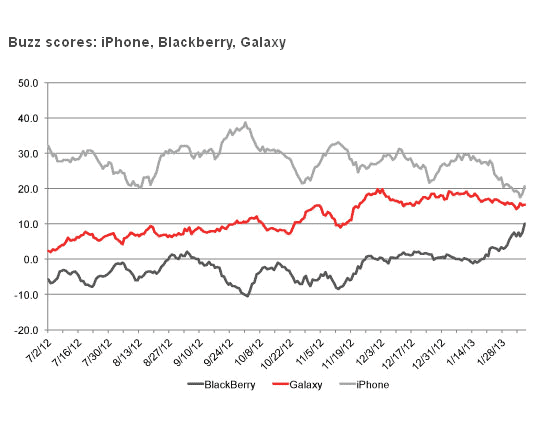The newly signed licensing agreement gives RIM broad access to the latest Extended File Allocation Table (exFAT) for certain BlackBerry devices, and it is likely it will be used on the company’s new Blackberry 10 – expected to launch in 2013.Microsoft Corp. (NASDAQ:MSFT) Tuesday announced that it has signed a patent licensing agreement with Research in Motion (TSX:RIM), sending shares of the BlackBerry maker higher.
News of the deal sent shares of the beleaguered Blackberry maker up 2.69 per cent as at about 2:45 p.m. ET, while Microsoft shares edged down 0.10 per cent.
The newly signed licensing agreement gives RIM broad access to the latest Extended File Allocation Table (exFAT) for certain BlackBerry devices, and it is likely it will be used on the company’s new Blackberry 10 – expected to launch in 2013.
Financial terms were not made available.
More and more, smartphones are being used for multimedia applications such as watching and shooting high-definition videos, and file sizes are ever increasing.
Microsoft said exFAT is a modern file system that facilitates large files for audiovisual media and enables seamless data portability and an easy interchange between desktop PCs and other electronic devices.
It added that exFAT improves on its predecessor, the FAT system, and greatly expands the size of files that flash memory devices can handle by five times over previous FAT technology, and also increases the speed with which those files can be accessed.
“Today’s smartphones and tablets require the capacity to display richer images and data than traditional cellular phones,” said Microsoft’s GM of IP licensing David Kaefer.
“This agreement with RIM highlights how a modern file system, such as exFAT can help directly address the specific needs of customers in the mobile industry.”
Waterloo, Ontario-based RIM was once a pioneer in the smartphone industry but has lost out in recent years to more-advanced devices such Apple’s (NASDAQ:AAPL) iPhone and devices based on Google’s Android software.
________________________________
This story is brought to you by Cantech Letter sponsor BIOX (TSX:BX). The largest producer of biodiesel in Canada, BIOX’s proprietary production process has the capability to use a variety of feedstock, including recycled vegetable oils, agricultural seed oils, yellow greases and tallow. For more information CLICK HERE.
________________________________
Apple shares also hit an all-time high Tuesday, touching $700, a day after it said it sold out of pre-orders for its new iPhone 5.
Meanwhile, RIM, which has lost about 95 per cent of its value since its heyday, is hoping for a comeback with its BlackBerry 10 phones – the first of which will be an all-touch device with software designed to allow users to move easily in and out of various applications.
The new BlackBerry 10 will join a market already crowded with new smartphones, including new devices from Nokia (NYSE:NOK) and Microsoft, Samsung and the latest iPhone, which launches this Friday.
The Microsoft deal couldn’t come at a better time for RIM, which this week suffered another blow as reports stated Yahoo! (NASDAQ:YHOO) will give its employees a new smartphone, but the Blackberry is not among the choices given.
According to a Financial Post report, Yahoo! employees will have a choice of phones: iPhone 5, Samsung Galaxy S3, HTC One X, HTC EVO 4G LTE, or Nokia Lumia 920. Yahoo is also reportedly going to pay its employees data and phone bills and will discontinue IT support for Blackberry phones.
Shares of RIM were lately up 16 cents, trading at $7.23, while Microsoft lost four cents to $31.17.
Microsoft said it offers “flexible IP licensing programs” that give companies access to many of the foundational technologies in its own products, “allowing those companies to build devices, applications and services that work seamlessly with each other”.
Since the software giant launched its IP licensing program in December 2003, the company said it has entered into more than 1100 licensing agreements and continues to develop programs that make it possible for customers, partners and competitors to access its IP portfolio.
Microsoft said it has entered into similar licensing agreements with several leading consumer electronics manufacturers through its IP licensing program, including Panasonic Corp. (NYSE:PC), Sanyo Electric Company Ltd. (TPE:1614), Sony Corp. (NYSE:SNE) and Canon Inc. (NYSE:CAJ).
Carrie White
Proactive Investors
Click here for the original article
_______________
About the Author
After graduating with honors in Journalism in 1998, Carrie went on to have a management career in the hospitality industry. She joined a western Canadian, community news publication in Golden, B.C. in 2008 and was quickly promoted to Editor. After two years, she joined another small, independent community news publication in Jasper, Alberta. Carrie recently returned to her hometown of Toronto and joined the Proactive Investors team as a Senior Equities Journalist in March 2012.
_________________________
Comment
One thought on “Here’s the lowdown on RIM’s licensing deal with Microsoft”
Leave a Reply
You must be logged in to post a comment.





 Share
Share Tweet
Tweet Share
Share




” with software designed to allow users to move easily in and out of various applications.”
Is it really too much to ask a supposed tech site to get the details correct of upcoming technology? it’s a MULTITASKING operating system, i.e. the important thing is not that you can easily move “in and out” of various applications, it’s that they can all RUN AT THE SAME TIME. Yeesh.